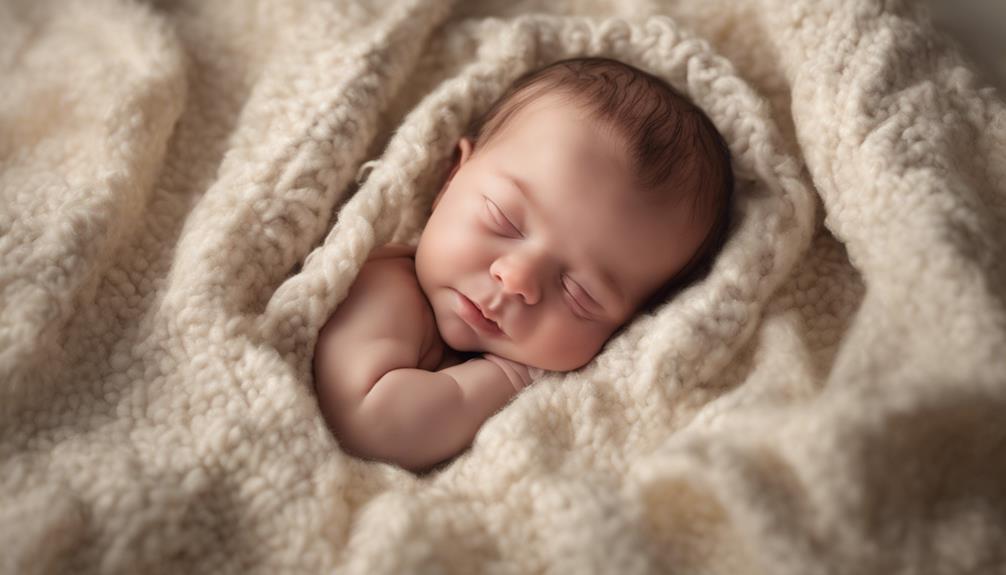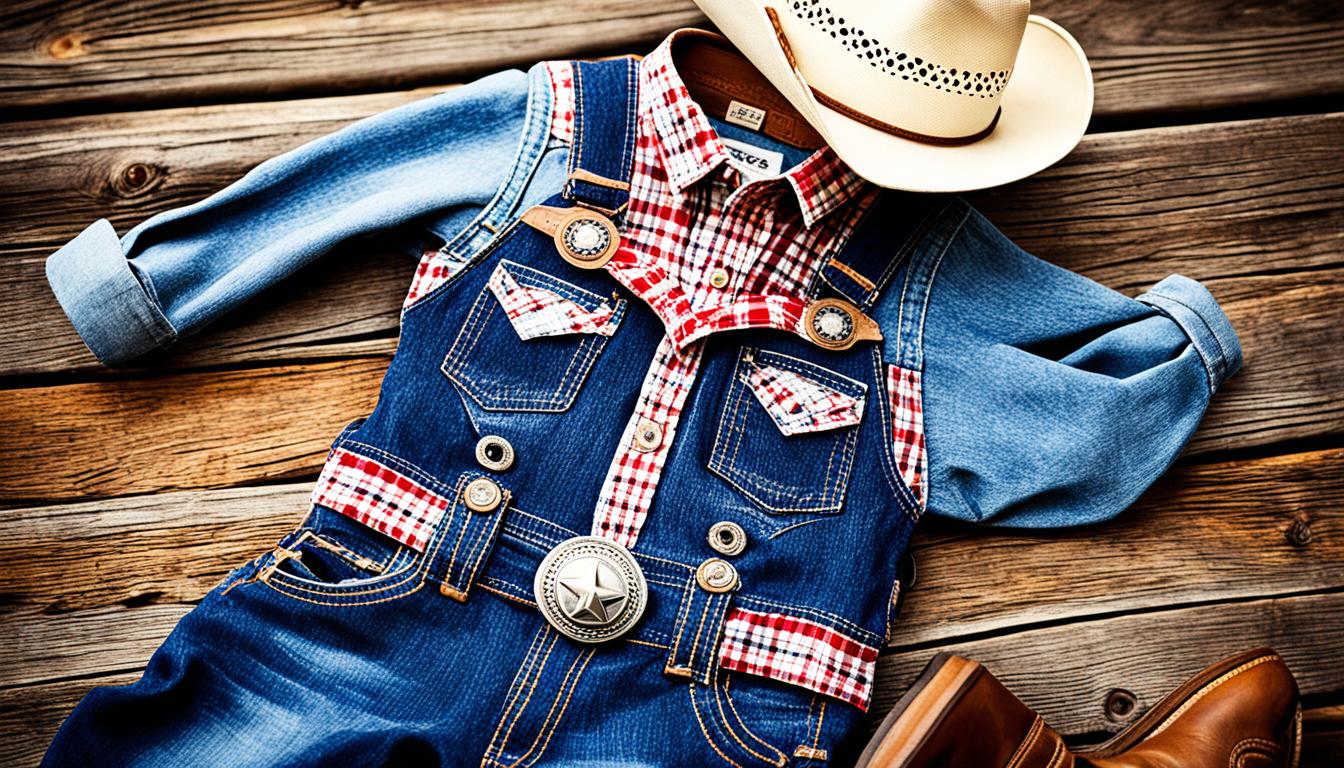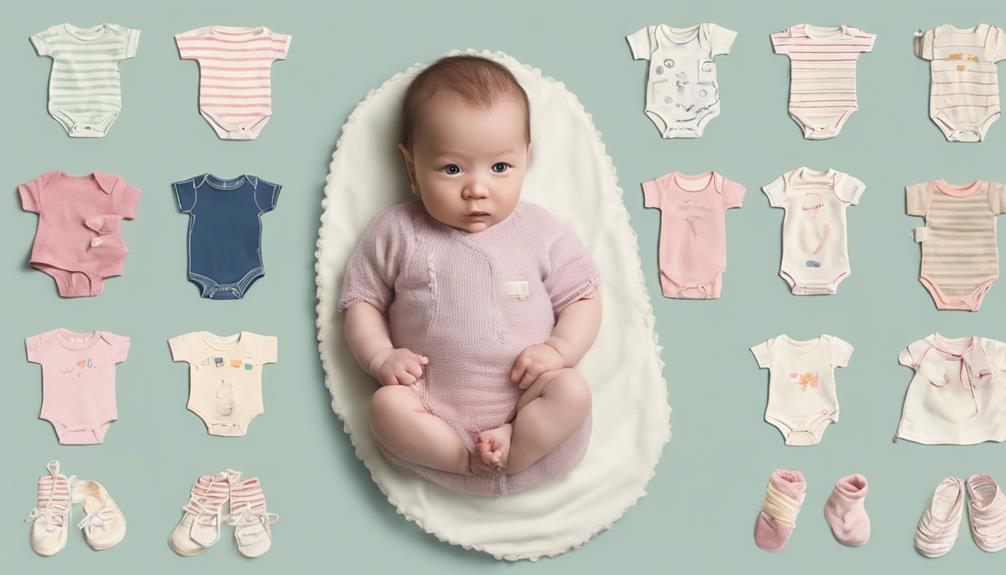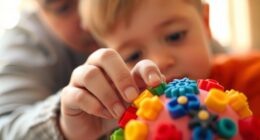Have you ever wondered why your little one gets hiccups so often? Newborn hiccups can be a common occurrence, sometimes causing concern or curiosity.
There's a fascinating explanation behind the scenes that sheds light on this common occurrence. Understanding the reasons behind newborn hiccups can offer insights into how to ease them and when to seek further guidance.
Key Takeaways
- Newborn hiccups are common due to immature digestive systems.
- Most hiccups occur after feedings and resolve on their own.
- Prolonged hiccups might signal underlying medical issues.
- Techniques like burping and pacifiers can help manage hiccups.
Frequency of Newborn Hiccups
Newborns often experience hiccups multiple times a day, especially after feedings. These frequent episodes of hiccups can be concerning for parents, but understanding that they're quite common in newborns is vital.
The good news is that these hiccups are usually short-lived, lasting only a few minutes to an hour. While most of the time, they resolve on their own without any medical intervention, paying attention if the hiccups persist for an extended period is important as they could signal an underlying issue that requires further evaluation.
Causes of Newborn Hiccups

Swallowing air during feedings often triggers hiccups in newborns. Your baby's immature digestive system is still developing, making it easier for them to gulp air while feeding, which can result in those adorable but sometimes concerning hiccups. Overfeeding or sudden temperature changes may also play a role in causing these little spasms.
Gastroesophageal reflux disease (GERD) could be another culprit behind your baby's frequent hiccups. However, the good news is that these hiccups are usually harmless and tend to decrease as your baby grows and their digestive system matures. So, while it might be distressing to see your baby hiccuping so often, remember that it's a normal part of their development and something that will likely improve over time. Just keep an eye on the frequency and duration, and don't hesitate to reach out to your pediatrician if you have any concerns.
Impact of Hiccups on Newborns

The impact of hiccups on your newborn can vary based on their frequency and duration, often causing concern for parents. Here's what you need to know:
- Frequency and Duration: Newborn hiccups are common and usually harmless, occurring multiple times a day. They typically last for a few minutes to an hour, with their frequency decreasing as your baby's digestive system matures.
- After Feeding: Most newborn hiccups tend to happen after feeding. This occurrence is normal and often related to the immaturity of the baby's diaphragm, the muscle responsible for breathing.
- When to Consult: While newborn hiccups are generally harmless, prolonged hiccups could be a sign of an underlying medical issue. If your baby's hiccups persist for an extended period or seem excessive, consulting a healthcare provider is advisable to rule out any potential concerns and provide you with guidance on managing and understanding your baby's hiccups effectively.
Alleviating Newborn Hiccups
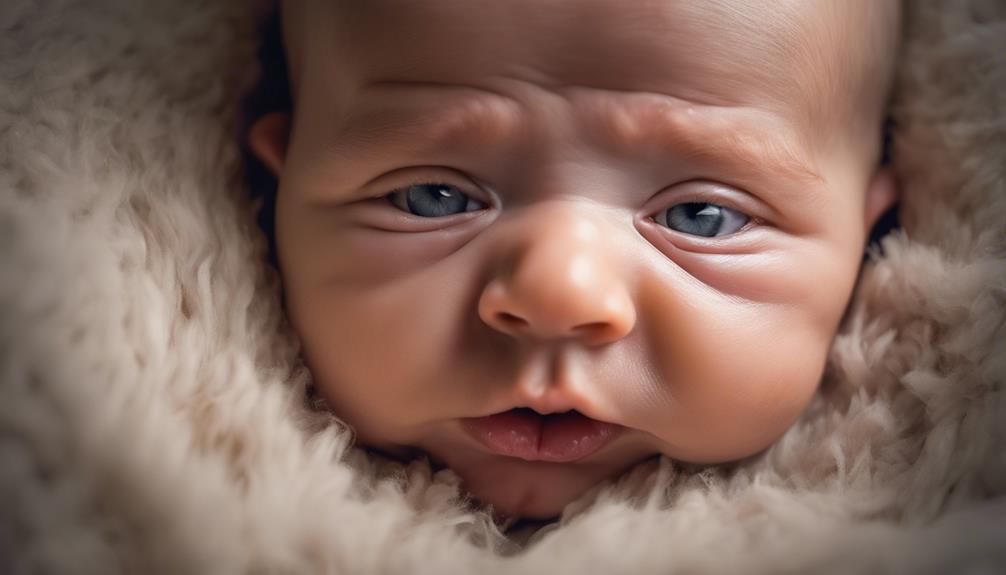
To help ease your newborn's hiccups, consider simple techniques like burping them during and after feedings. Newborn hiccups are often caused by swallowing air while feeding, so helping your baby release that air through burping can prevent hiccups. Additionally, offering a pacifier to help regulate breathing or changing your baby's position can also aid in getting rid of hiccups. It's important to create a calm and quiet environment for your baby and keep them upright after feeding to reduce the occurrence of hiccups. If the hiccups persist and become bothersome, you can consult with your healthcare provider about trying Gripe Water or simethicone drops, which may provide relief for your little one. By incorporating these simple strategies into your routine, you can help alleviate and prevent hiccups, allowing your baby to be more comfortable and content.
| Techniques to Alleviate Newborn Hiccups | ||
|---|---|---|
| Burp your baby during and after feedings | Offer a pacifier for breathing regulation | Keep your baby upright after feeding |
Tips for Managing Newborn Hiccups
If your newborn continues to experience hiccups despite trying various techniques, consider implementing additional strategies to manage and reduce their frequency. Here are some tips to help you manage your baby's hiccups:
- Adjust Feeding Techniques: Try feeding your newborn in an upright position to reduce the chances of swallowing air. Additionally, make sure they're secured properly during breastfeeding or using the correct bottle nipple size for bottle-fed babies.
- Burp Frequently: Make sure to burp your baby frequently during and after feedings. Burping helps release trapped air in their stomach, reducing the likelihood of hiccups.
- Create a Calm Environment: Newborns are sensitive to their surroundings, so create a peaceful and relaxed environment during feedings. Minimize noise and distractions to help your baby feed calmly and reduce the chances of hiccups.
Frequently Asked Questions
Is It Normal for Newborns to Hiccup a Lot?
Yes, it's normal for newborns to hiccup frequently. Their developing diaphragm and immature digestive system contribute to this. Generally harmless, hiccups usually decrease as they grow. Prolonged hiccups might signal an underlying concern.
How Do You Stop Newborn Hiccups?
To stop newborn hiccups, try burping them during and after feedings, offer a pacifier to regulate breathing, change their position to upright, gently rub their back to release trapped air bubbles, and avoid adult remedies.
Is It OK to Lay Baby Down With Hiccups?
It's perfectly fine to lay your baby down with hiccups. Hiccups are common and don't affect breathing. If the hiccups are due to reflux, keeping your baby upright might help prevent vomiting. If hiccups persist, consult a pediatrician.
When Are Baby Hiccups a Concern?
If your baby's hiccups persist, it's wise to seek advice. Trust your instincts. Consult a healthcare provider if hiccups are accompanied by other concerning symptoms. Your baby's well-being is paramount, and professional guidance can provide reassurance.
Conclusion
So, next time your newborn has a bout of hiccups, remember that it's a common occurrence and usually nothing to worry about. By understanding the causes and implementing simple strategies like feeding smaller amounts and burping regularly, you can help alleviate and prevent hiccups.
Remember, frequent hiccups are typically harmless, but if you have concerns about your baby's hiccups, don't hesitate to consult with a pediatrician to rule out any underlying issues.
